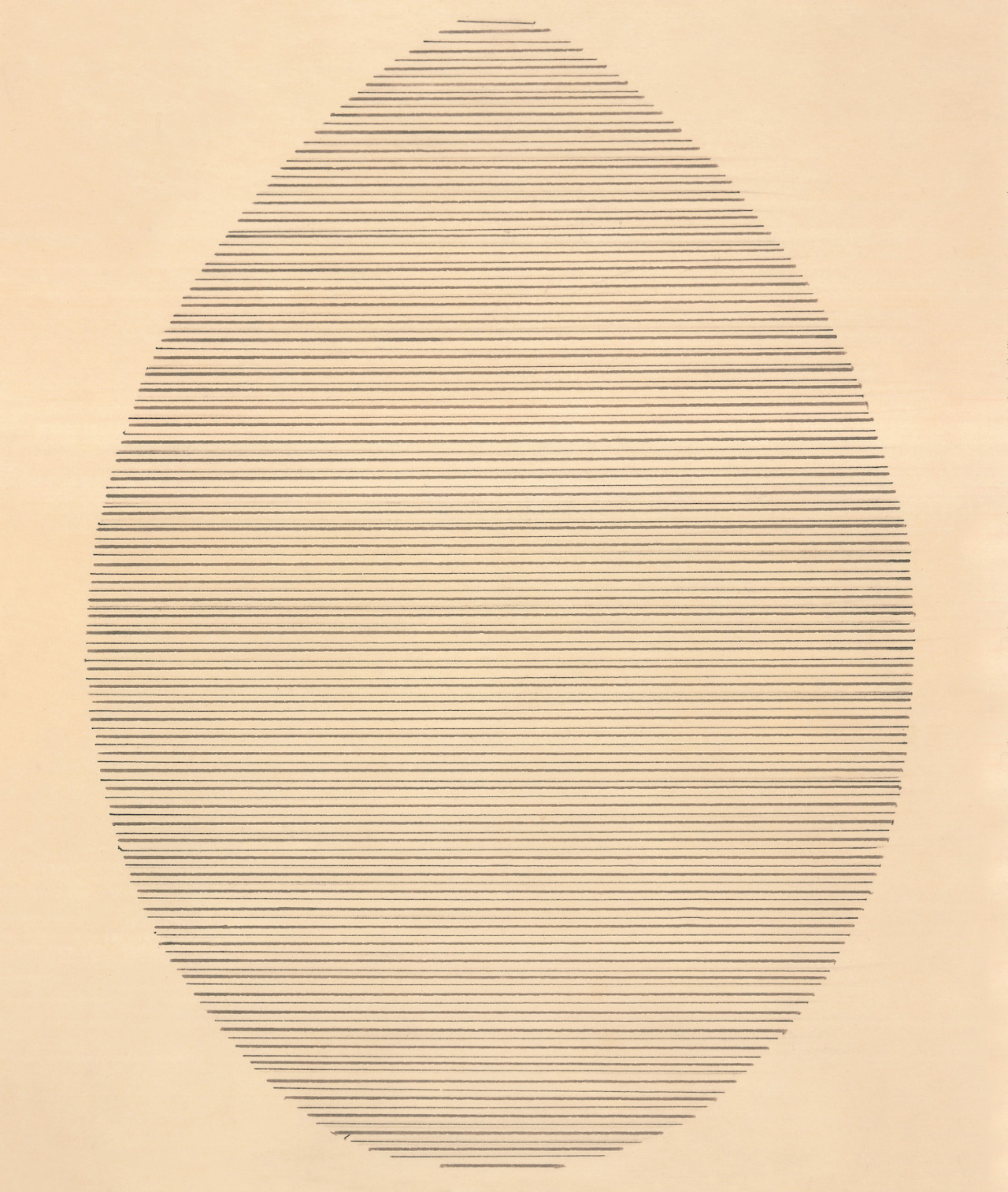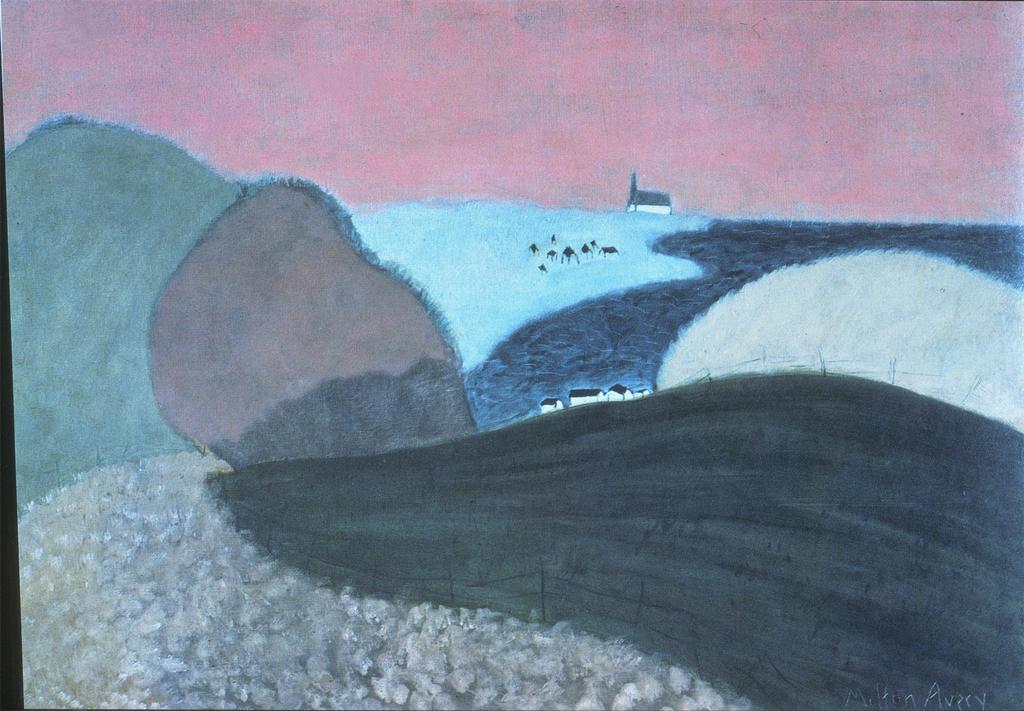Oh, dear. Sometimes I think I love the philosophy, intentions, and writings of Minimalist abstract expressionists more than I love the actual artworks.
That said, I love Agnes Martin's work - all of it. She seems to be to be the perfect pure artist, refined, filled with joyful and kind intention and attention, empty of self, transcended and suspended in the moment, in the world yet fully in spirit, a true vector for glimpsing the Tao, and accepting the self and its limits, as Freud concluded we must.
Looking at her work is like always being able to hear the distant and poignant whistle of the train.

In this photo, so stoic, present, and resolved, gazing with full knowingness, and the quality of borne pain it carries - Agnes Martin reminds me so much of photographs of my grandparents and great-grandparents from the late 1800's and early 1900's - German farmers tough of spirit, dour, and almost sullen as the face the camera. Of course, they didn't smile because they had to hold still for so long to expose the film, right?
So what and who does she make me yearn for? For Martin Avery, for Mark Rothko, for Sean Scully.
That said, I love Agnes Martin's work - all of it. She seems to be to be the perfect pure artist, refined, filled with joyful and kind intention and attention, empty of self, transcended and suspended in the moment, in the world yet fully in spirit, a true vector for glimpsing the Tao, and accepting the self and its limits, as Freud concluded we must.
Looking at her work is like always being able to hear the distant and poignant whistle of the train.

In this photo, so stoic, present, and resolved, gazing with full knowingness, and the quality of borne pain it carries - Agnes Martin reminds me so much of photographs of my grandparents and great-grandparents from the late 1800's and early 1900's - German farmers tough of spirit, dour, and almost sullen as the face the camera. Of course, they didn't smile because they had to hold still for so long to expose the film, right?
So what and who does she make me yearn for? For Martin Avery, for Mark Rothko, for Sean Scully.
 |
| Midwinter, 1954 |
 |
| Untitled, 1959 |
 |
| Untitled, 1960 |
No one talks or writes much about whether Martin's diagnosed schizophrenia shaped her art, how, and how much. As I look at the body of work, I think I feel the grid as a cage, a prison always settled over her being in which she worked ceaselessly with as much precision as she could bring to bear to explore the possibilities of her constrained existence.
Of course, that's what we've all got, right? The ultimate non-knowing subjective state of what we can know and not know we don't know; the physical constraints of perception, the body and time which construct that grid..
Of course, that's what we've all got, right? The ultimate non-knowing subjective state of what we can know and not know we don't know; the physical constraints of perception, the body and time which construct that grid..
How satisfying, now beautiful, how right.
 |
| Friendship, 1963 paper |
 |
| The Egg, 1963 ink on paper |
 |
| Untitled, 1995 oil on canvas, 6"x6' |
 |
| Mark Rothko |
 |
| Sean Scully, Home |





No comments:
Post a Comment